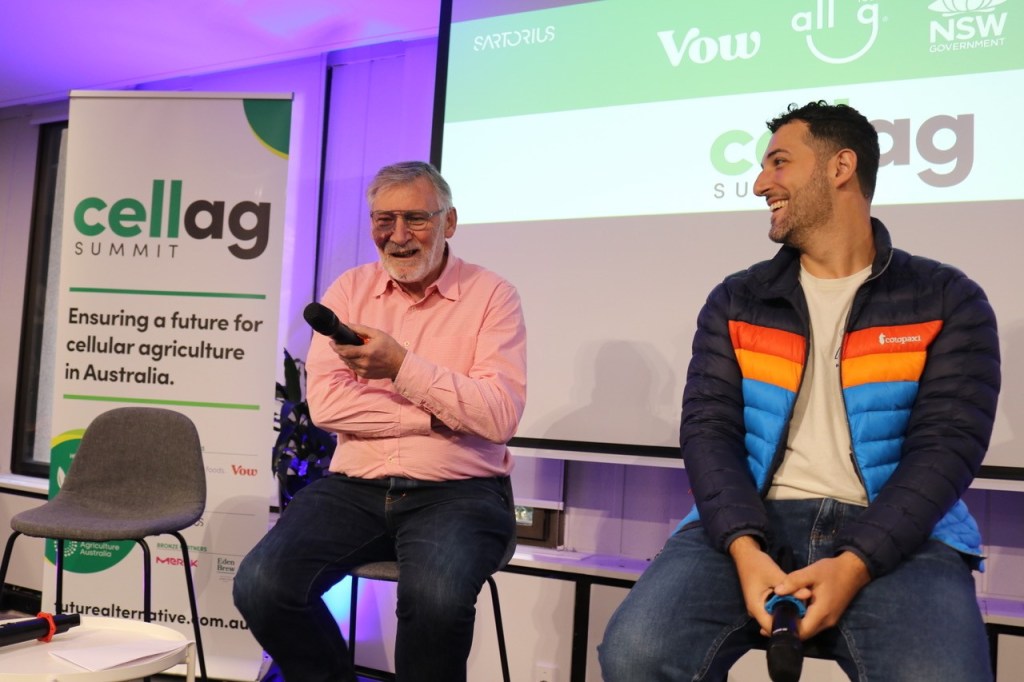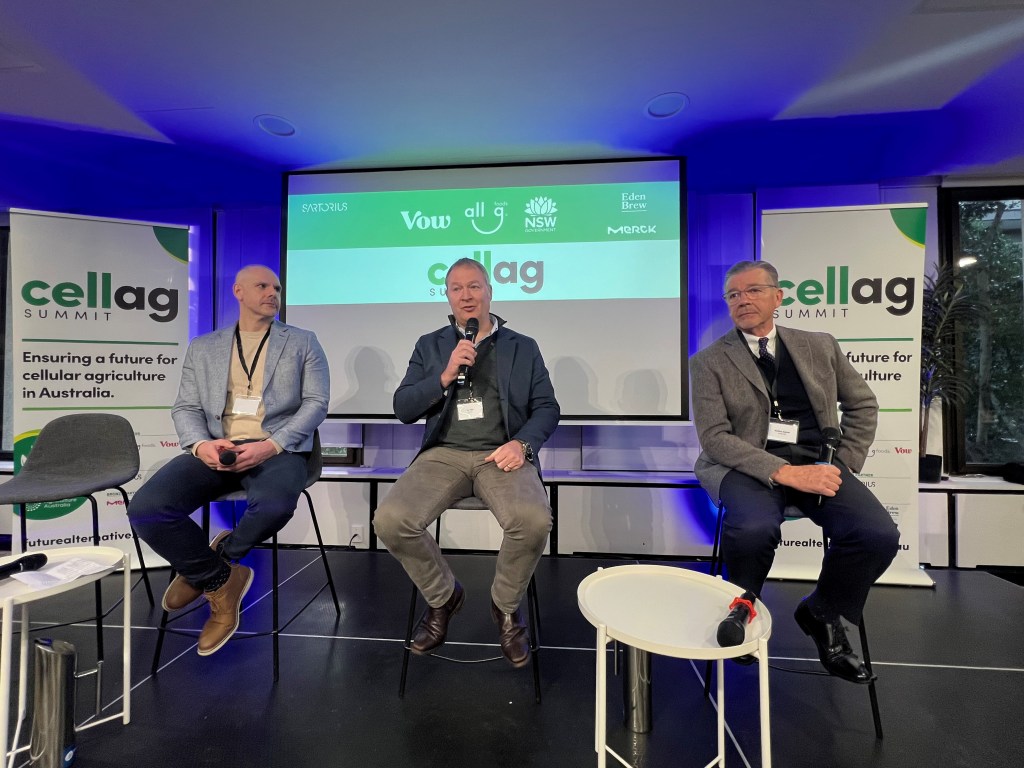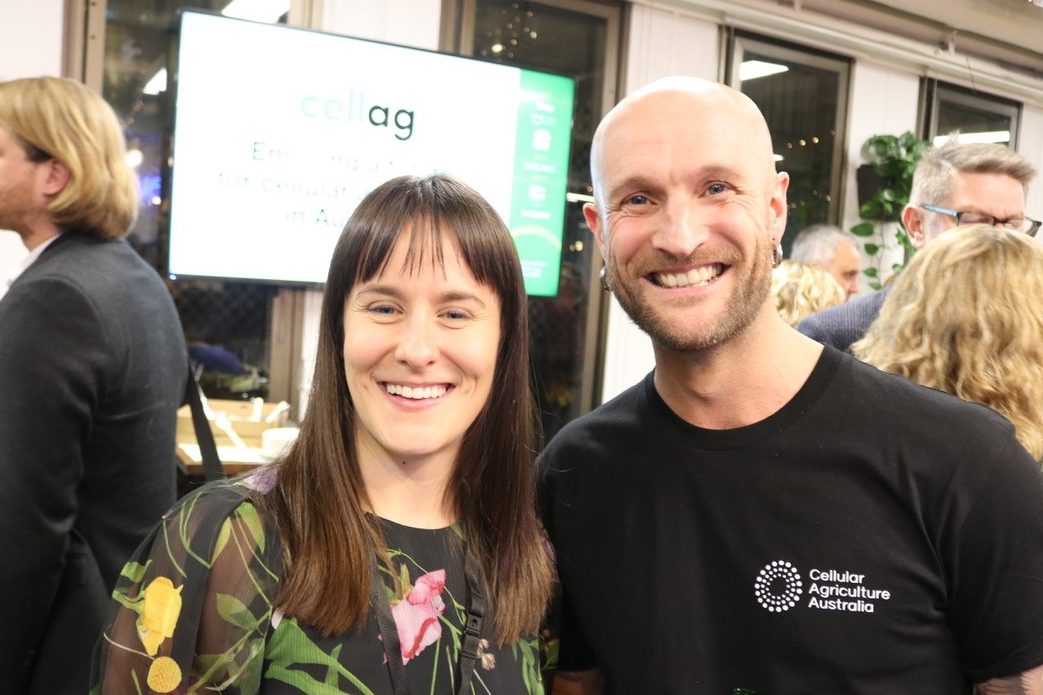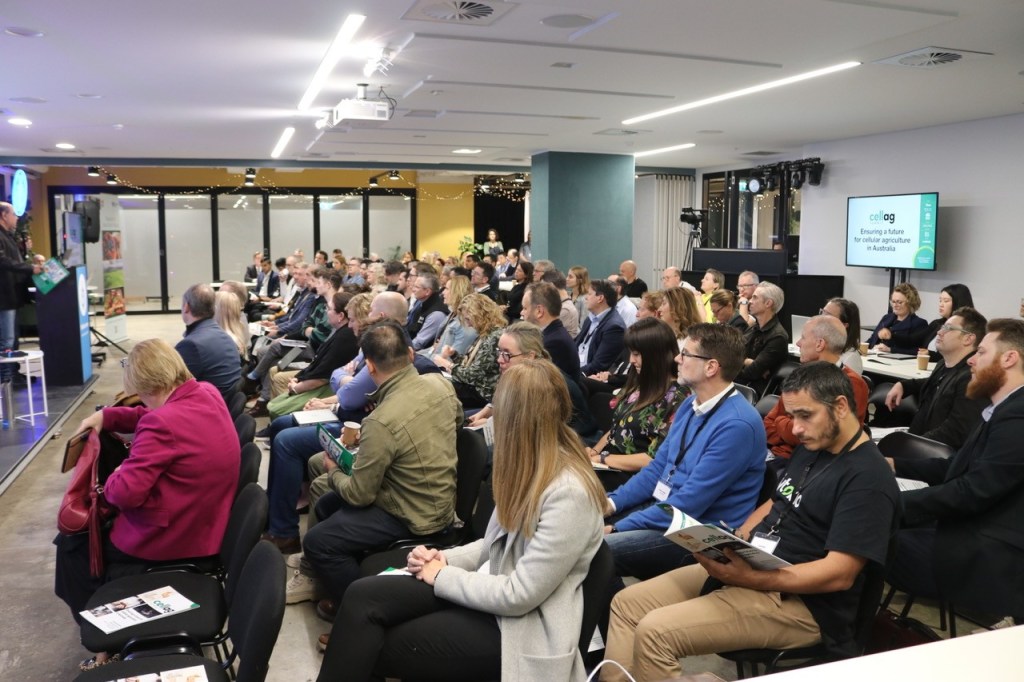To help us deliver a bigger and better CellAg Summit in 2024, we asked this year’s attendees to share their thoughts on the inaugural event. Here’s what they had to say.
Hosted on 15 June, the CellAg Summit was the first ever conference dedicated to Australia’s cellular agriculture sector, organised by Future Alternative and Cellular Agriculture Australia.
With over 130 attendees, the event saw leaders in precision fermentation and cell cultivation, together with government representatives, academics, researchers and investors, discussing how the burgeoning sector can overcome the challenges it faces as it transitions from R&D to commercialisation.
The day comprised a series of 20-30 minute panel discussions, with themes including scaling, consumer perception, the investment landscape, collaboration and government support.

In the spirit of transparency, and to help ensure we can deliver an even better event in 2024, we distributed a survey to this year’s event delegates, asking them how they felt about the event, its format and the program. Here are some of the key takeaways:
- Overall, attendees gave the 2023 CellAg Summit a ranking of 4.53 out of 5.
- The event’s program scored 4.5 out of 5.
- The size of the event scored 4.37 out of 5.
- Pre-event communication scored 4.18 out of 5.
- The event’s location scored 4.11 out of 5.
- Catering scored 3.92 out of 5.
Breaking down the day’s program, the clear favourite was a debate between Vow’s George Peppou and Monash University’s Paul Wood, where – moderated by the CSIRO’s Michelle Colgrave – the pair challenged each other on the viability of the cultivated meat sector and whether or not it can scale to a point where it makes a genuine impact on food security. Attendees scored the debate 4.35 out of 5.

Other favourites were:
- Cell Ag’s Role in Feeding the World, featuring Jim Fader (Eden Brew), Paul Bevan (Magic Valley) and Geoffrey Annison (Alt Protein CRC) – 4.08 out of 5.
- Investor Insights: Sarah Nolet (Tenacious Ventures), Phil Morle (Main Sequence), Simon Newstead (Better Bite Ventures) – 4.04 out of 5.
- The Importance of Consumer Acceptance for Novel Foods: Megan Stanton (Mintel), Gie Lim (Deakin University), Stephanie Dolman (FSANZ) – 4 out of 5.
When asked to elaborate on what they enjoyed most about the event, the answers varied greatly, but some common responses included:
- The format – attendees appreciated the prevalence of interactive panel discussions, and the absence of presentations (no ‘Death by Powerpoint’!).
- Length and frequency of networking breaks.
- Diversity of speakers and topics covered.
- Diversity of attendees. People with varying levels of understanding of the cell ag space, and with different stakeholder interests, were all in the room together.

Crucially, when asked how likely they would be to recommend the Summit to a friend of colleague, with 5 being the best outcome, the average score was 4.51. Similarly, when asked how likely they are to return for the 2024 CellAg Summit, the average response was 4.55.
As with the positive feedback, there were some common responses when attendees were asked how the event could be improved. This information is particularly valuable for us, as it will have a significant bearing on how we curate next year’s event.
Areas for improvement include:
- The venue – attendees would like a larger networking area where they can move about more freely.
- Government representation – this was probably the strongest piece of feedback we received. Attendees want both state and federal government representatives/bodies in the room, both as delegates and speakers.
- A more sophisticated approach to audience Q&A. This year, audience members could submit questions via the Slido app, but this could have been executed better, especially in regards to clarifying who the questions were intended for, and which questions were prioritised (and why). Rather than having dedicated Q&A sessions, as was the case this year, it may be more effective to incorporate question time at the end of every panel.
- An even broader cross-section of speakers, including representation from the traditional agriculture/protein sector, hospitality, retail and health practitioners.
- A bigger event that either runs over multiple days or has concurrent sessions/breakout groups which delve deeper into particular topics.

Looking to 2024
We’re now looking to 2024 and would like to encourage any organisation or individual interested in assisting with the event’s curation to please get in touch.
We’d also like to hear from organisations interested in sponsorship opportunities.
You can contact Future Alternative‘s editor, Danielle Bowling at dbowling@intermedia.com.au
To stay up-to-date on the latest industry headlines, sign up to Future Alternative’s enewsletter.


